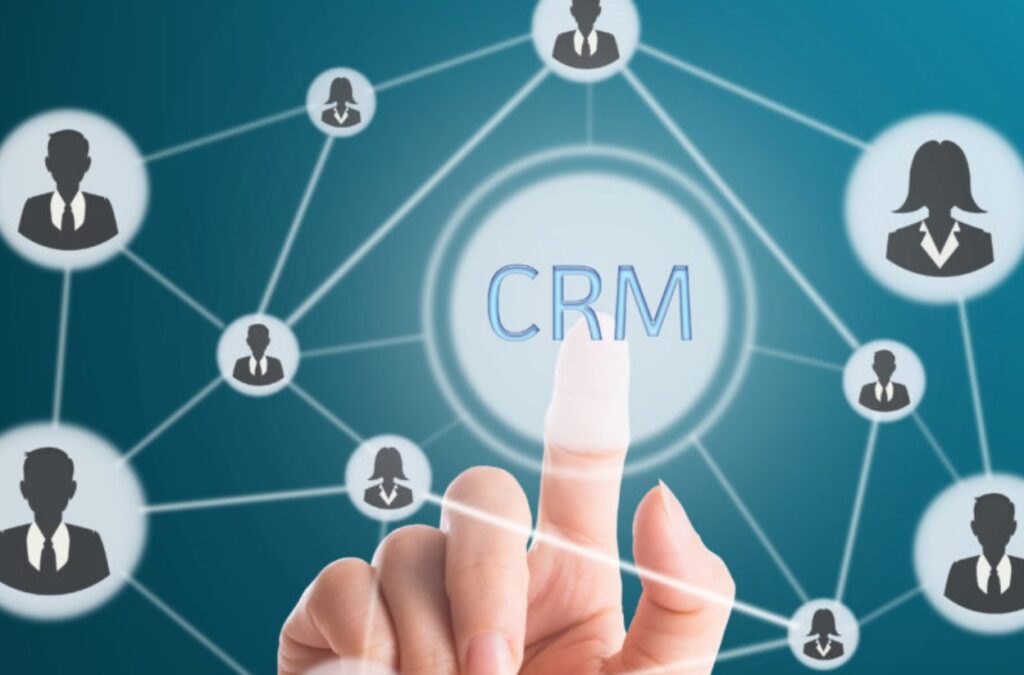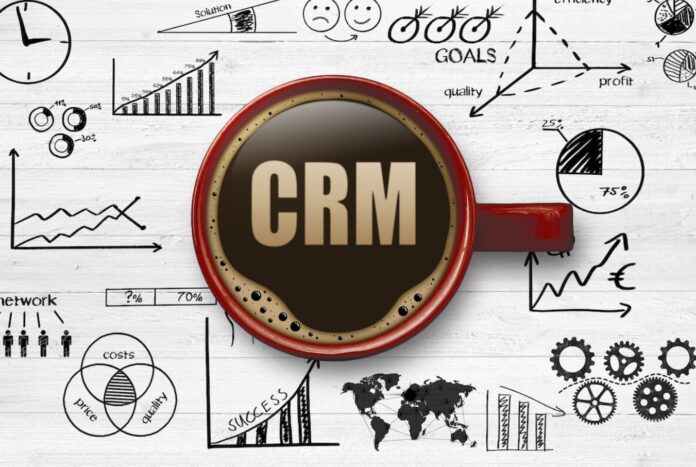Customer Relationship Management (CRM) software is essential for any successful business operation. It allows your company to manage business relationships and structure the data linked with these partnerships. A CRM platform contains both customer and prospect information gathered in a centralized location in a broader sense. CRM solution serves to enhance internal visibility of the operation you’re currently working on and allows you to keep track of partnerships and possible sales opportunities on the business’s back-end. A CRM platform can help you organize a plethora of customer information if your eCommerce platform needs other companies for operation.
What kinds of CRMs are there on the Market?
The different five types of CRMs available on the market are:

1. Operational CRMs
Operational CRMs provide your sales, marketing, and customer service departments the potential to better support existing and possible customers. Since it allows you to structure information about your contacts within the tool and regulate standard procedures, the tool allows for automation, which includes:
- Marketing automation
- Sales automation
- Service automation
This helps different departments work with each other to capture, nurture, and close deals for your organization.
Pro-tip. If you stop by implementing Salesforce for your business, you need to choose Salesforce consultants and developers. Consider Magicforce as a trusted Salesforce implementation partner.
2. Analytical CRMs
Analytical CRMs allow organizations to make better use of the information collected about customers. This includes customer preferences, points of contact, channels, interests, etc. Where operational CRMs serve in attributing customers to the sales funnel, for instance, analytical CRMs allow us to understand them.
This helps organizations utilize data they already gather to improve decision making in their business.

3. Collaborative CRMs
Collaborative CRMs help the different teams of your organization to exchange information regarding customers. Collaborative CRMs emphasize customer service and help you boost the sharing of information between departments like marketing and sales with support teams. These departments mostly work individually, which makes addressing customers enquire harder. It allows an easier way of managing your relationship with customers.
4. Campaign Management CRMs
Mostly, campaign management CRMs can be described either as operational CRMs or analytical CRMs. They somewhat blend the properties allowing the utilization of gathered customer data and insights to run marketing or sales campaigns. Check here for more information.

5. Strategic CRMs
Sometimes confused with the definition of collaborative CRMs, strategic CRMs concentrate on customers. It does not just provide insights right away but instead tunes or customizes how you communicate with your customers in the long run. This is useful if you’re running a business where the focus is on long-term relationships instead of fast sales and short campaigns.
How can CRM help Businesses Increase Their Revenue?
CRM helps businesses grow their revenue in the following ways:
1. Upselling and Cross-Selling
Businesses can enhance their revenue by increasing each customer’s average purchase value, which can be achieved either by upselling or cross-selling. Upselling – a method of setting an increased cost product or an add-on like a warranty to a customer seems to be a wastage of money to many consumers. With CRM, it shouldn’t be the case.
A beneficial and effective CRM system helps employees upsell and cross-sell manufacturing-related and recommended items and services based on past purchase history and other relevant customer data.

2. Regular and meaningful Interaction
It’s a fact that selling is more comfortable to repeat customers and inexpensive than gaining new businesses, but communication is necessary to maintain relationships with customers. In fact, regular interaction with customers leads to increased purchasing and improved customer retention. This can be true if your business is relevant, personalized, and meaningful.
Without CRM, a customer easily gets lost or forgotten. But companies having CRM can gather and analyze patrons’ details to help deliver marketing communications tailored to every customer.
3. Boosting Employee Productivity
An important benefit of a CRM solution is that it can integrate various processes into one system. From lowering training time to promoting the job’s efficiency, which refers to a substantial increase in employee productivity across numerous departments.
CRMs further help in eliminating time-consuming redundancies, where various employees engage in one task. They also facilitate communication between departments, reducing wasteful phone calls, and developing a more seamless process for customers who might be waiting on answers or information.

4. Targeted Marketing to get New Customers
CRM not only manages existing customers, but customer relationship technology is created for the management of sales leads as well. By letting organizations filter their leads by interests and demographics like life stage, CRM enables targeted marketing to possible customers. This allows businesses to direct their marketing efforts to similar populations, boosting new customers’ odds.
5. Allows automating processes
With the help of advanced AI technology, CRMs are taking over various business functions for a better experience for customers. Chatbots and customer self-service options prompt faster issue resolutions for increased customer satisfaction. Your purchases are repeated with satisfied customers and lead to referrals and useful feedback, which can drive businesses’ revenue based on word of mouth.

How hard is it to integrate CRM into a business?
You can follow these steps to integrate CRM into your business:
1. Make a team
It becomes hard to integrate new software when it comes to sales. Precisely when none of your team members has used it before. Ensure that your team members understand the value and the advantages of a CRM system.
2. Select a CRM software together
Building a relationship with customers is an art, but it’s not that simple. An appropriate CRM system will give you all the necessary data to exceed your customers’ expectations and build up your value. Involve your entire team in the initial stage of CRM implementation. If you’re willing to make them use a CRM, ask them to choose one!

3. Customize your CRM
CRM Softwares are mostly customizable so that you can alter them according to your needs and workflow. Due to this reason, you’ll need to make sure your CRM naturally fits into your sales process, just as you begin trialing it.
4. Train your team
Till now, you would have expertise in running your new CRM. Yet, your team members still aren’t aware of it and may neglect some time-saving features. Due to this reason, prepare different training sessions, develop a manual, and teach them all the essential tips and tricks.

5. Solve unexpected problems
Start facing problems since you can’t fix them all. Therefore, prepare yourself to deal with unforeseen threats. Get to your CRM vendor, consult their client support, and your problem will be solved.
6. Integrate CRM with different tools
Link your CRM with tools like Gmail, web conferencing applications, and social networking sites. This gives your sales reps additional motivation to adopt a new system.

Summary
Customer Relationship Management (CRM) is essential software for organizations that are willing to build a better relationship with their old and new customers. They help your organization to manage business relationships and structure the data linked with these partnerships. There are five main types of CRMs that you can use to enhance your business sales and marketing. CRMs help you manage customers and increase your business revenue quickly in no time.









